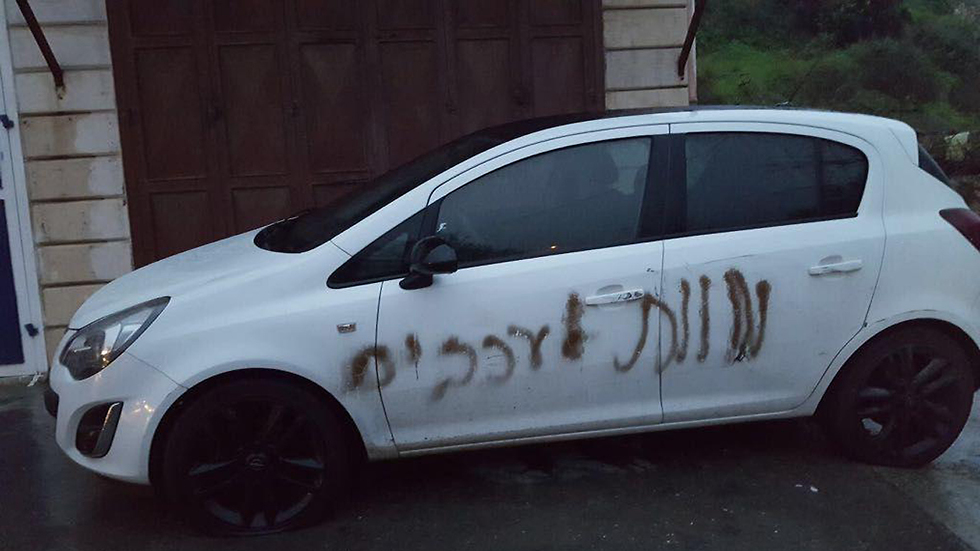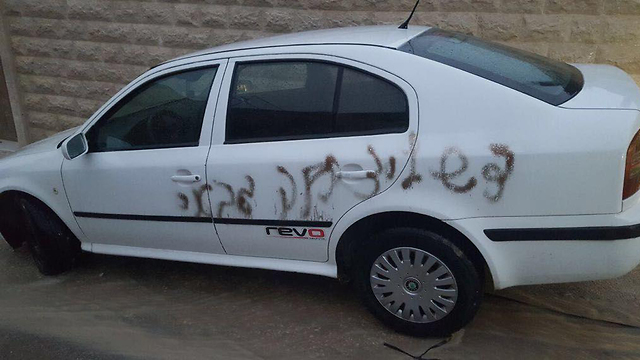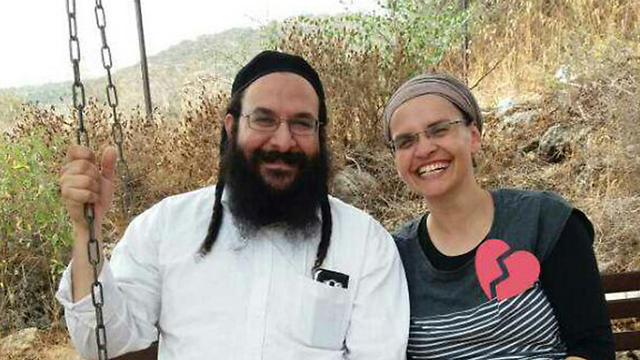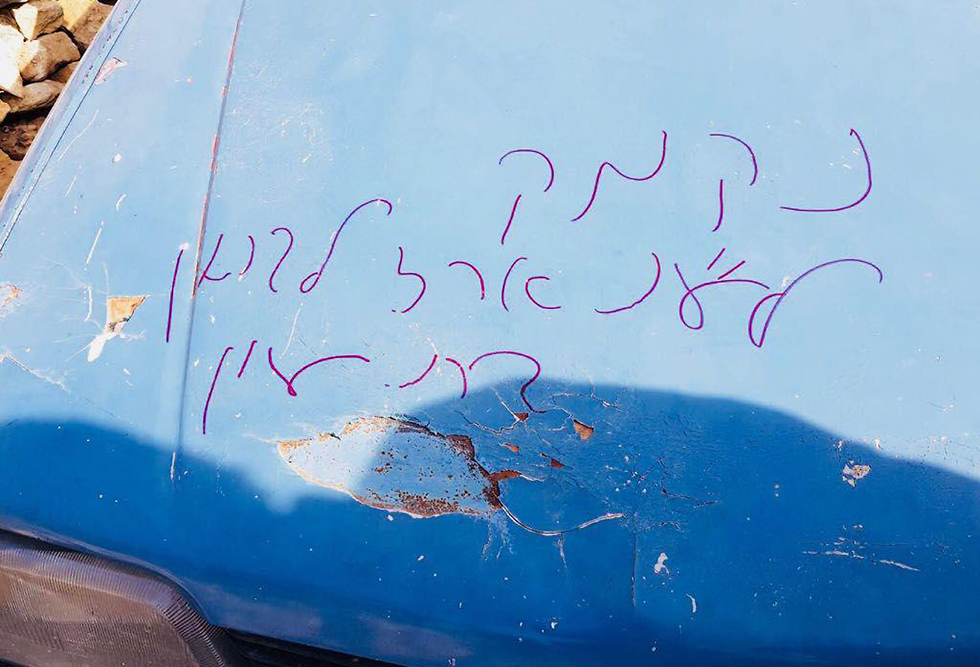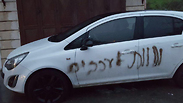
Settlers carry out 7 hate crimes in past month
Since the murder of Rabbi Raziel Shevah in Havat Gilad, defense establishment has noted a marked rise in number of hate crimes against Palestinians carried out by settlers; tires were pierced, graffiti sprayed saying "Death to Arabs," "Transfer now"; police and Shin Bet are investigating, but no suspects have been arrested as yet.
No less than seven incidents of nationalist crime were committed in the past month alone across the West Bank, including graffiti saying, "Transfer now," "Death to Arabs" and "Revenge." Police and Shin Bet are investigating, but no suspects have been arrested as yet and it seems the trend is growing.
The latest incident of a suspected hate crime was discovered early Thursday, when unknown parties vandalized three Palestinian vehicles in the village of Yatma near Nablus, spraying them with malicious writings. IDF and Civil Administration forces arrived to the scene and collected the vehicle owners' testimonies.
The Yatma incident joins a series of crimes committed in the West Bank, when earlier this month "Death to Ahed Tamimi" and "Deport the Tamimi family" were sprayed on the walls of a Nabi Salih residence, the community in which the aforementioned Palestinian teen provocateur resided before her arrest and indictment for accosting IDF soldiers.
Three days later, settlers threw stones at Palestinians near the Division Square in Nablus and wounded one of them near the eye. The same day, near the Kokhav HaShahar settlement, settlers again threw stones at Palestinians, damaging a vehicle.
Four days later, on 9 February, the tires of three vehicles belonging to Palestinians were pierced near a school in the small Palestinian village of Khirbet Beit Zakariyyah and sprayed with statements such as "Death to Arabs" and "Bat Ayin" (a settlement in Gush Etzion—ed).
A few days later, graffiti saying "Transfer now" and "Regards to Yitzhak Gabai" (convicted of setting fire to the bilingual school in Jerusalem) was sprayed. The following day, Yitzhar settlers defaced windows and a water tank in the village of Asira al-Qibliya southwest of Nablus.
The defense establishment said an uptick was clearly discernible in the volume of such incidents in the West Bank in past weeks, simultaneously with several deadly terrorist attacks carried out in the same region in the comparable period.
Despite the relatively tame nature of the crimes, security forces regard the sequence and breadth of events very gravely. Men of the nationalistic crime division of the police's Judea and Samaria District, along with Shin Bet's Jewish department, are attempting to locate the suspects involved.
Escalation started after the murder of Rabbi Raziel Shevah
A defense source said tensions began running high between Hilltop Youths and Palestinians after the murder of Rabbi Raziel Shevah near the Havat Gilad outpost. The murder of the rabbi, a well-known public figure in the region's community, enraged local youths.
Moreover, calls for "revenge" were made at Shevah's funeral, interrupting the speech of Bayit Yehudi Chairman Naftali Bennett. In addition, a small and relatively marginal protest movement was founded recently, as part of which several youths called for the creation of a "reprisals unit."
As part of the defense establishment's attempts to eradicate such crimes, detectives from the nationalistic crimes division have been operating in Hilltop Youth circles. They have attended every one of their gatherings in the West Bank, dispersed Torah lessons they participated in and occasionally carried out arrests or tore down outposts.
A source with knowledge of the details said that, "When youths have nowhere else to be, they go around causing trouble."
Police also occasionally arrests youths who demonstrated—especially after terror attacks—in places where the combustibility potential is high. Security checkpoints are often put up in the evening at Yitzhar junction, with the IDs of every passing resident checked.
Security forces are also battling Hilltop Youths legally, by carrying out "arrest drills" of youths who have violated commander's orders after they were removed from a certain area or barred from meeting their friends.
Such youths are usually brought before court, where—in most cases—they are released by the presiding judge. Many times the judges even turn restraining orders and a prohibition on meeting friends into a judicial decision, which carries a lesser penalty in case of violation compared to a commander's order.










